Are you thinking about leasing to Marijuana Growers?
With the legalization of marijuana for medicinal and or recreational use in over half the states in America, it’s no wonder that all eyes are on the profits. The Cannabis industry skyrocketed quickly to an over $7 billion dollar industry, seemingly overnight.
That being said, many would-be investors don’t know exactly how to capitalize and protect themselves in this growing field. So, first things first. If you have vacant land and are considering leasing it out for cannabis grow operations, you should know some important facts and tips.
Should you risk it?
In Huntington Beach, California, a landlord received a fine of over $150,000 because he allowed a cannabis dispensary to operate from his property. Yes, the use and sale of marijuana is legal in the state of California, but that doesn’t mean that it is legal in every city. Individual cities must regulate and restrict or prohibit according to their own discretion and laws. So, of course, it is important when leasing land to a cannabis operation, that you know the exact laws and regulations…not only for your state, but for your city and county as well.
Do not forget that the use, possession, sale or processing of marijuana is illegal, under federal law. Under the Controlled Substances Act, marijuana is classified as a Schedule 1 substance. Additionally, under another federal law known as the Crack House Statute, it is considered a felony to knowingly open, lease, rent, use or maintain any property or venue for the purpose of manufacturing, distributing, or using any controlled substance.
Under the Obama administration, the federal government avoided prosecutions and generally ignored the federal statutes against the cannabis industry. It is currently unclear whether the Trump era or future administrations will uphold the same tactics.
As it stands, because of the federal laws, a land owner is liable to have their property seized under civil forfeiture laws. So if you choose to lease your land to a marijuana grower, be aware and make an informed decision.
Be careful who you lease to
As with any investment (stock, real estate, etc), it is important to do your research. You wouldn’t rent an apartment to someone who didn’t have proof they could pay you. Nor should you lease your land to anyone who can’t prove that they have a successful background in the industry. You must make sure they are legitimately licensed by the state. And in general, avoid the shady back-alley type business deals that mind land you in hot water. Trust your gut. Do your due diligence, and be careful.
What Should you Charge?
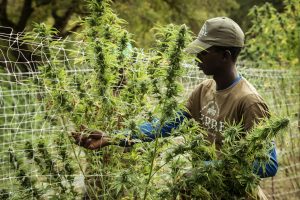
This is a question that cannot be answered with a simple number. You can charge a healthy deposit up front as a sign of good faith from the grower. Anywhere from 3 to 12 times the monthly rent can be requested as a deposit. And rents increased anywhere from 20% to 40% of the estimated profit.
Also, find out if the tenant intends to pay rent in cash, because that can cause a red flag at your bank and cause your bank to cut ties with you.
Will the rent be monthly, or profit sharing (also likely to cause your bank to cut ties and the federal government to eyebal you more closely).
Knowing Your Worth
The rent may indeed be increased for multiple factors. Greenhouses, electricity, water access, etc. You may charge higher rent on a property that is more attractive to a grower.
Put it in writing: Leases and Contracts
Always protect yourself. A thoughtfully prepared contract can protect you and your property. But there are things you should know first.
Before signing any paperwork, you should definitely do some detective work. You need to know whether the other party has experience with business and with growing. Whether or not they have made a profit from this type of venture before. Paying attention and avoiding sketchy characters now can help you avoid a court case in the future.
It is recommended that you begin the lease drafting process with a letter of intent (LOI). This will clearly define the terms that you will want to put on the lease. You will want to include rental amount, dates of occupancy, taxes, insurance, how long the occupancy will endure, maintenance, and anything else you can think of that is important to you.
And then you choose the type of lease you will be using and get cracking on drafting it up.
Avoid using a gross lease and opt instead for a triple-net lease. Which is a lease where the tenant pays a base rent and then also pay a portion of the operating expenses.
Leases can’t completely cut off property managers and owners from all liability. there are several clauses that may serve to limit it. Generally, commercial leases designed to service marijuana businesses include clauses that list things like federal intervention, forfeiture threats, changes in federal enforcement policy, and enforcement actions as lease violation-constituting defaults. These clauses let an owner escape the lease if it is proving too risky and could be looked on favorably if it were to come to court.
Residential Lease
Don’t use these. Not to lease your property to cannabis growers. Not for commercial gain, not ever. It’s easy to think you can properly reword or revise a residential lease to say what you need to say. But there’s never a reason. Just don’t use it.
Commercial Lease
When speaking of commercial leases, you are talking either office, industrial, or retail. For the purposes of operating within the cannabis industry with a land lease, many businesses use industrial and retail. Make sure you do your research. Using commercial leases on certain plots of land will nullify their tax benefits.
Ground Lease
Ground leases are for long-term agreements. Long-term as in “decades”. Generally, in these leases, the tenant desires to construct buildings or other improvements. In most cases, the improvements to the property revert in ownership back to the landlord after the lease is over. Ground lease tenants usually pay all taxes associated with the property. The tenant pays taxes, insurance, utilities, maintenance. This practice is known as having a “net rent” lease.
Agricultural Lease
An agricultural lease is the offspring of the commercial and ground lease. This type of lease is most often used in rural grow operations. This type of lease is commonly used if certain stipulations have to be made when it comes to equipment, irrigation and water rights, farming costs, etc. These leases can be revised to the specific parcel of land. Include provisions for every building, well, or tractor if that is your desire.
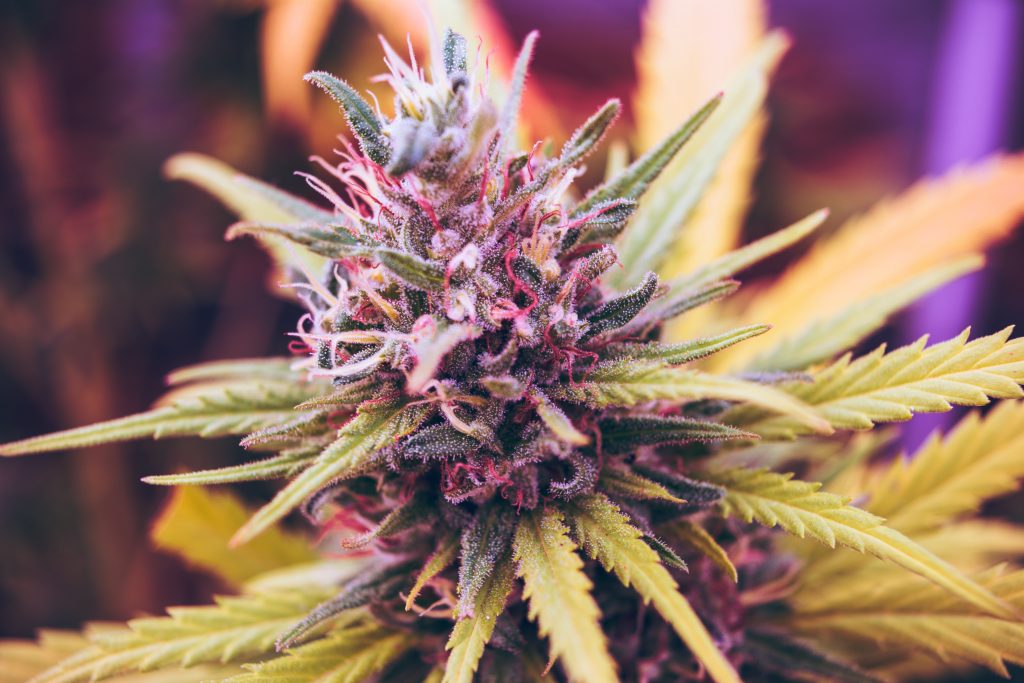
Include these in your lease
Profit Sharing
Check the rules before agreeing to any type of profit sharing. Doesn’t matter how little it is, regulators don’t like profit sharing. It blurs the lines between whether you are the landlord or one of the owners of the property. So always be aware of what the regulations are
CSA Indemnity
This is definitely a must. Always push for an indemnity clause. If you are smart you will press the issue to get an indemnity requirement from your tenants on general liability issues as well as on the civil forfeiture under the federal Controlled Substances Act. This way, the tenant will be required to absolve you of wrongdoing if the feds come knocking and try to nab you for renting to a marijuana grower.
Licensing Cooperation
The tenant will want you to include this. This will force the landlord to cooperate with any new rules or regulations in order to help your tenant stay in compliance with the licencing committees. It’s okay to do it, but I don’t know if I would contractually obligate myself to that.
Access
Did you know there are rules about who can enter the property while leased to a marijuana grower, and when they can be there? You want to include an access clause that gives you the right to enter onto the premises. Make sure it’s clearly defined. Additionally, make sure the rules for who else can access the property are written clearly as well.
Occupancy and Commencement Dates
Make sure you have the clause in your agreement that no activity related to marijuana can begin until after the tenant receives their license. For your own protections, you don’t want to be seen as aiding and abetting any illegal practices. You can even choose to allow the tenant to rent the property but at a reduced price until they get their license.
Outs
You will definitely want to include an escape route in your contracts. The federal government may be cracking down and threatening you with fines, or time, or property seziure. Your tenant may have had a terrible grow year or two. Or they may be refusing or unable to comply with certain laws and regulations. Either way, you need to include these things in your lease. Give yourself a legal “out”.
Environmental Concerns
Maybe you eventually want to turn your property into an organic pumpkin farm, but because you didn’t include specific clauses in your lease with your previous tenant, you cant. Why? Because he used certain fertilizers, herbicides, pesticides and dumped his waste on the property. Make sure you take these things into account when you draft your lease. There are state laws that govern environmental procedure for farming and also separate laws for cannabis related farming. Stay informed and protect yourself and your property.
Lease Term
A lease can be as long as you want it to be. But in the cannabis market, the leases usually have shorter lease terms because everything is based on the market. You can decide to lease to a tenant for a term of 15 years. But what happens when a new president is voted in 4 years from now and decides to crack down severely on marijuana grow operations?
Always keep in mind, the volatility of the market when determining the length of the lease term.
Dispute Resolution
You of course understand about evictions and the obvious reasons to go to court. But if there are any shared responsibilities, especially profit sharing, or familial ties, or legal ties….maybe include a clause that gives you the option for alternative dispute resolution. It sounds vague but there are many reasons why you might not want to go to court.
Federal Illegality
We know it’s illegal federally to operate in the cannabis industry. Maybe you can get away with crafting a clause that gives you plausible deniability in the event the feds come barreling towards you. It’s highly likely your tenant won’t want to sign anything that says you aren’t responsible for leasing to him/her. But if you have a good lawyer, I’m sure you can figure something out.
Insurance
First things first! Remember that your policy will cost more simply because you are in the cannabis industry. Make sure you include in your lease which of you will be getting and maintaining insurance. And what types of coverage, policy limits, cost changes. The tenant would carry policies that covered crop insurance and directors liability.
Make sure that your insurer doesn’t include federal law verbiage in their policies. No point in getting insurance if they don’t pay claims to people who are breaking federal laws.
Financing
It may be difficult, even impossible to get conventional financing. Why? Because most banks have loan agreements that have clauses that say “borrower, the property, and its use will comply with all applicable laws, rules and regulations.”
I know we’ve stated it before. But for those in the back, it’s illegal federally. Banks have the ability to finance and then call in their loans. Banks that finance to marijuana growers or their landlords can find themselves unable to receive insurance from the FDIC.
So be prepared to find alternative financing, or receive private investment funds.
Security
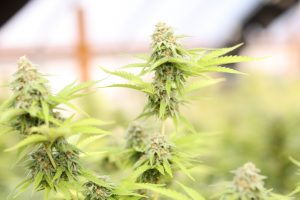
Did you know that some states require the entire operation to be monitored 24 hours a day. Some states require you to keep 3 months worth of video footage.
You can require your tenant not to keep any cash on the property to decrease the chances of robbery.
Find out if access to the property will require a non-disclosure agreement and identification and remain on clear and open terms about your rights as the landlord…in writing.
Protecting the land
Because of the nature of the industry, cannabis grow operations can be especially difficult on the land and natural resources. If their business is failing, the tenant could try to abandon the property, leaving environmental degradation behind. Make sure you address this in your lease.
Hemp instead?
Hemp, unlike Marijuana, has been removed from the Controlled Substance Act. For federal reasons, you might want to think about Hemp instead. Be careful, Stay updating yourself on the laws and regulations, and Be vigilant.
Looking for Growers?

Closing the Gap: Uniting for Equitable Black Generational Wealth
Let’s stand up for fairness, rewrite the rules, and create a world where everyone has a real shot at success.

Bridging the Wealth Gap: Efforts Towards Equitable Solutions
Introduction: Bridging the Divide – Understanding the Wealth Gap A Persistent Disparity in Wealth: Unveiling the Divide The landscape of the United States is characterized
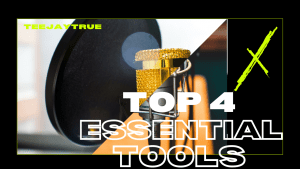
The 4 Essential Tools You NEED for Audiobook Narration
It doesn’t have to be expensive. No need for fancy bells and whistles! It only needs to work.
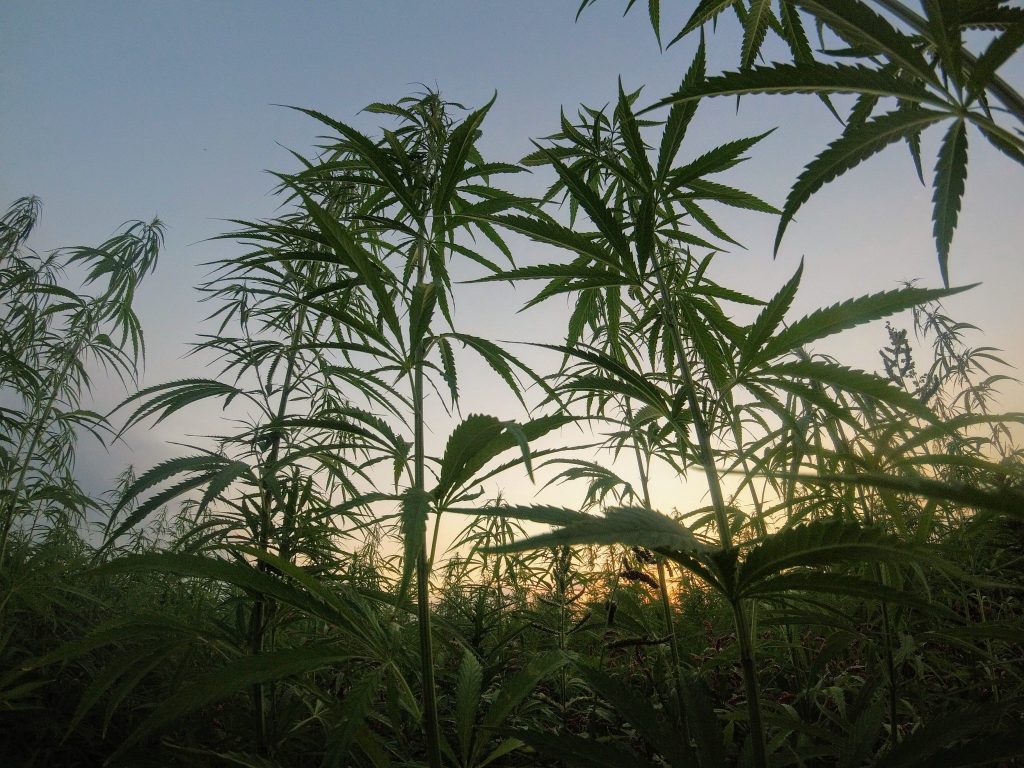
Pingback: 8 ways to make money from vacant land - Black Generational Wealth